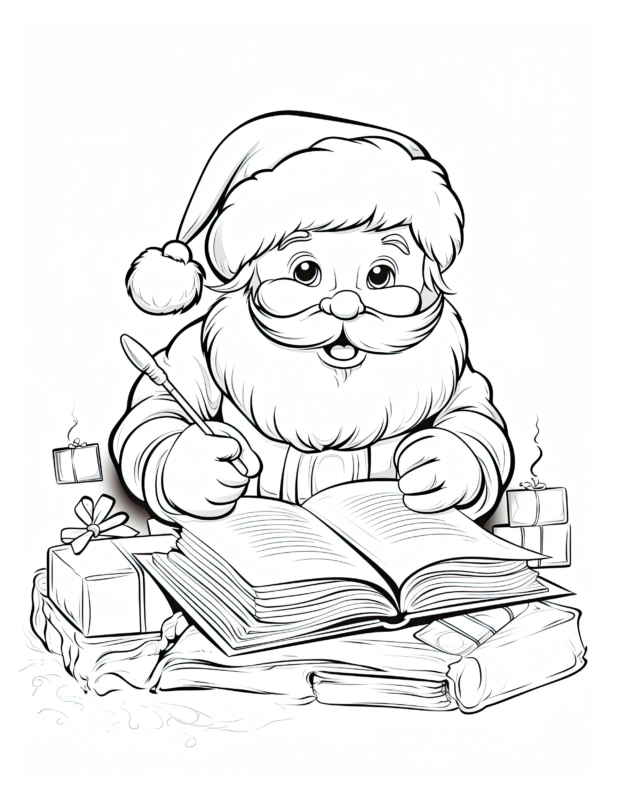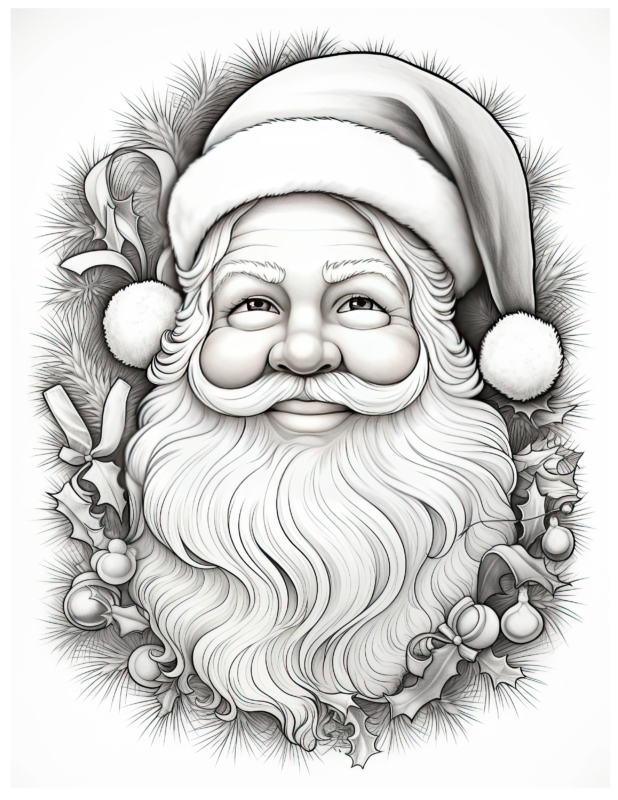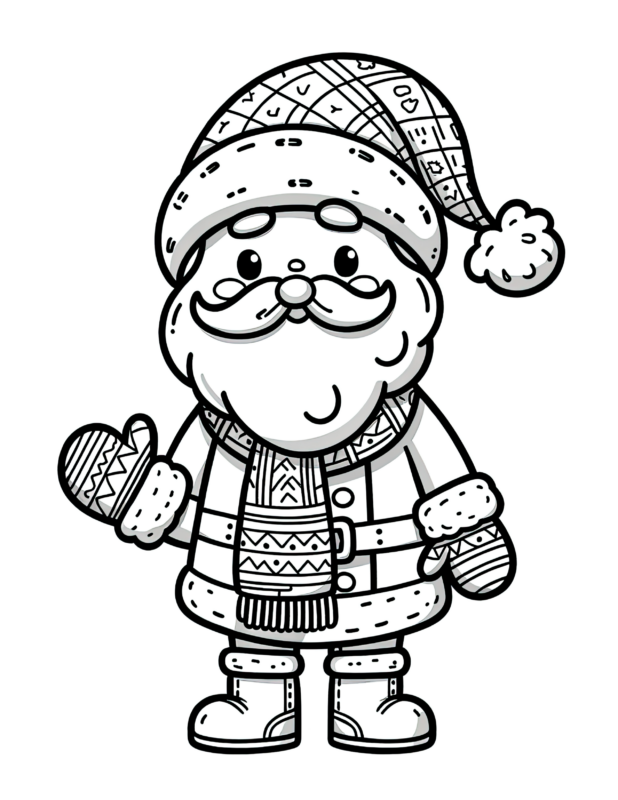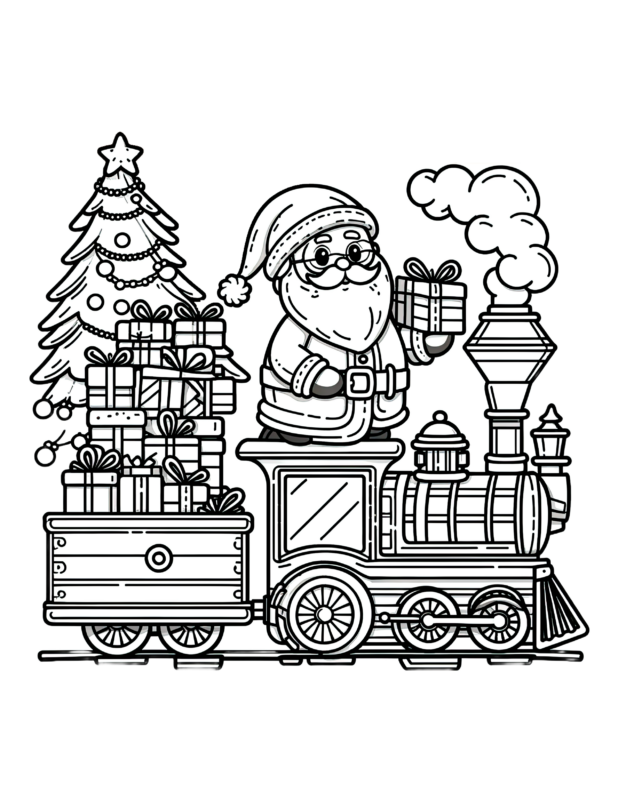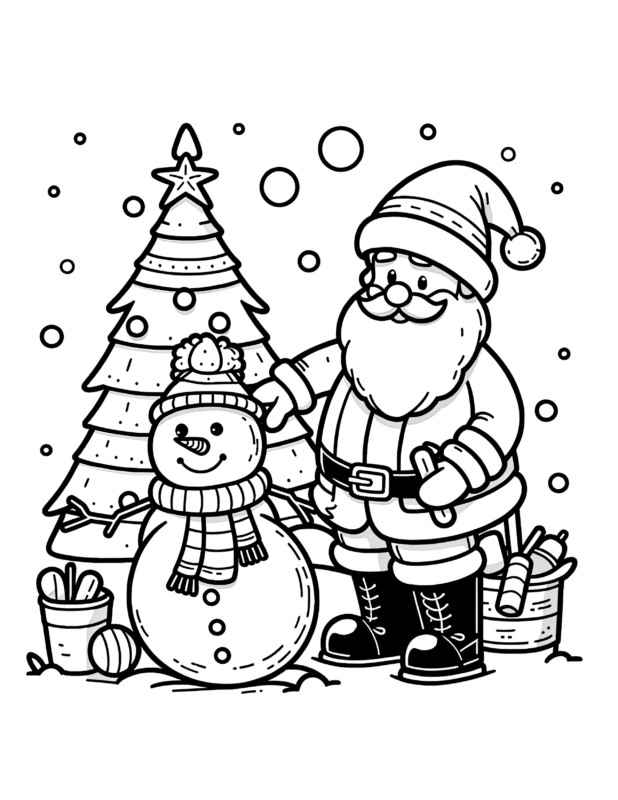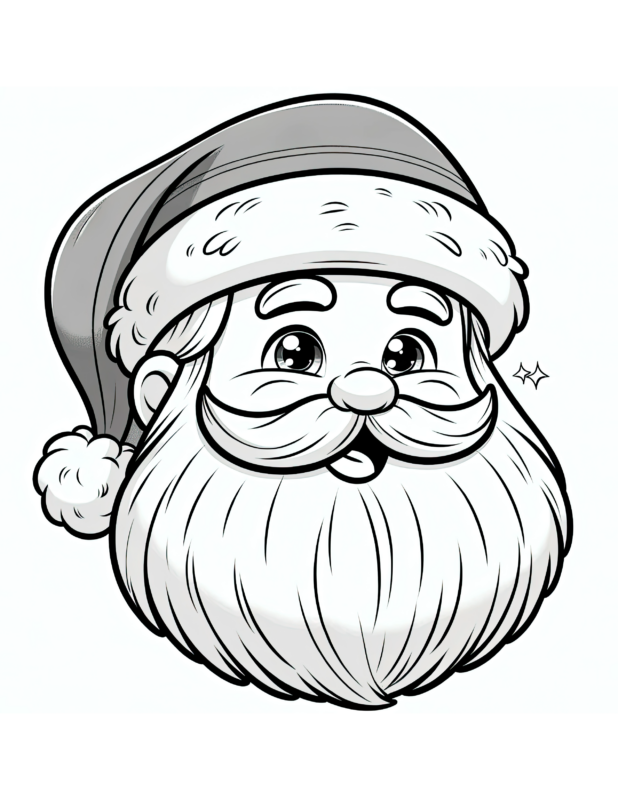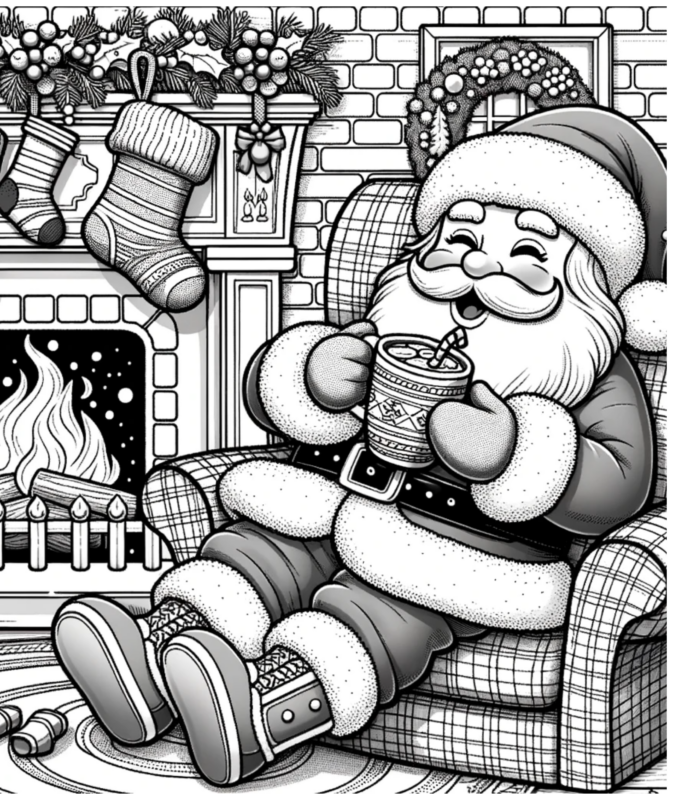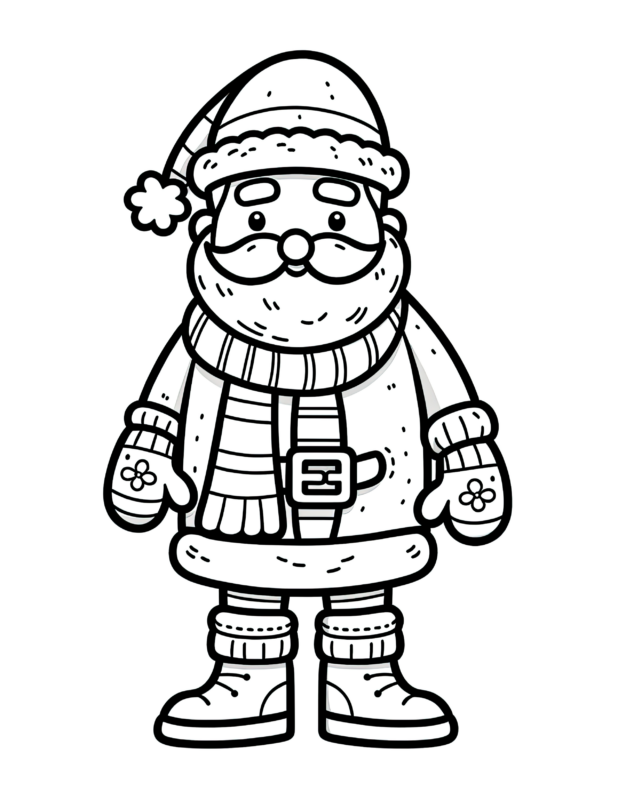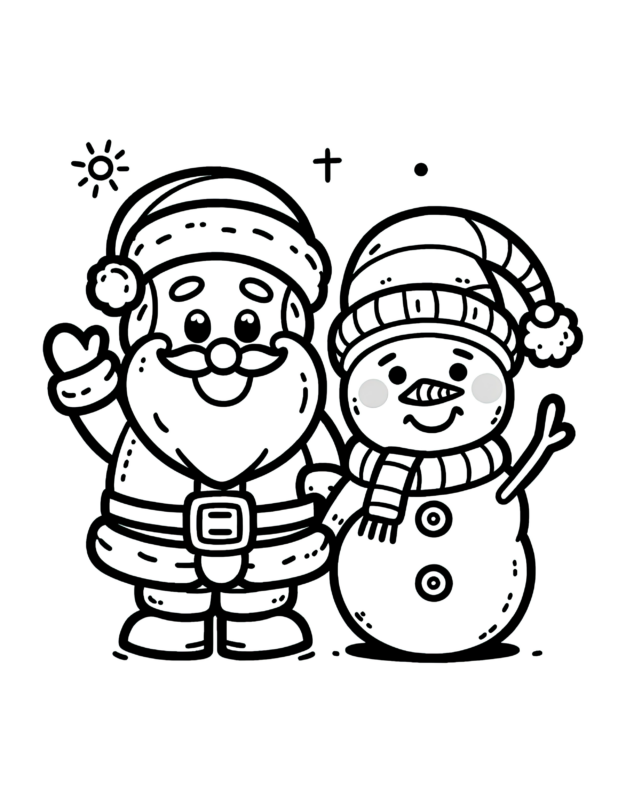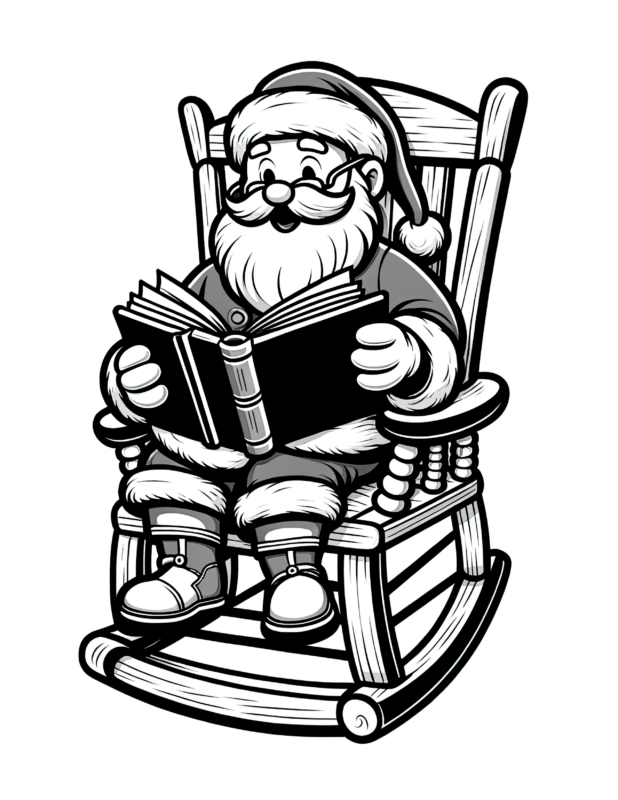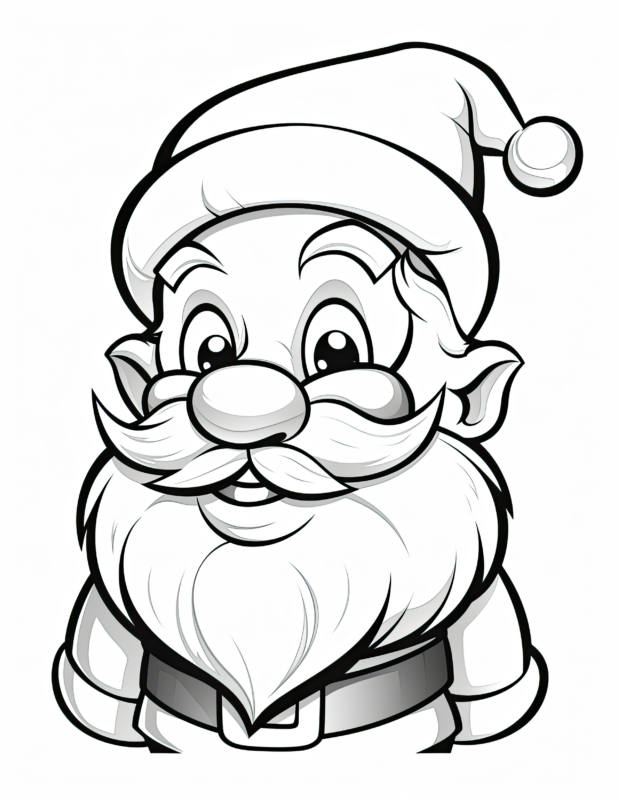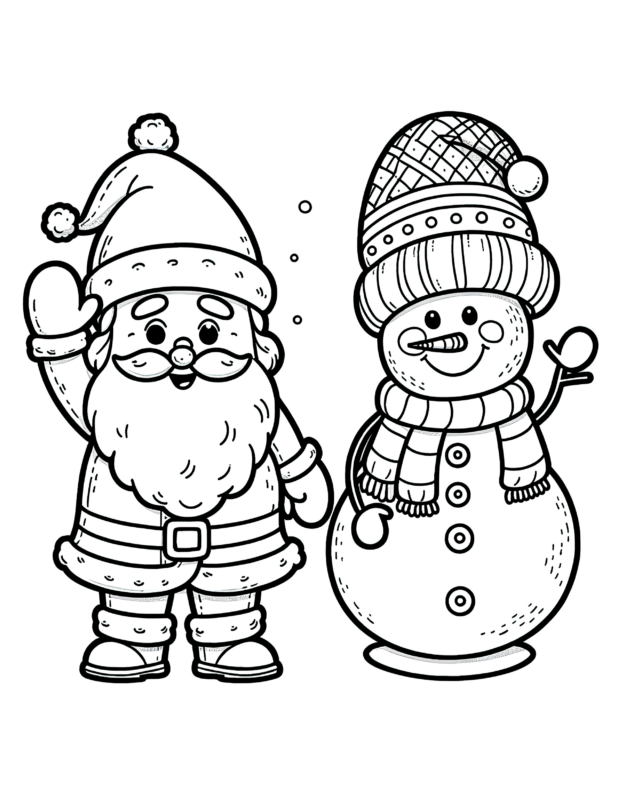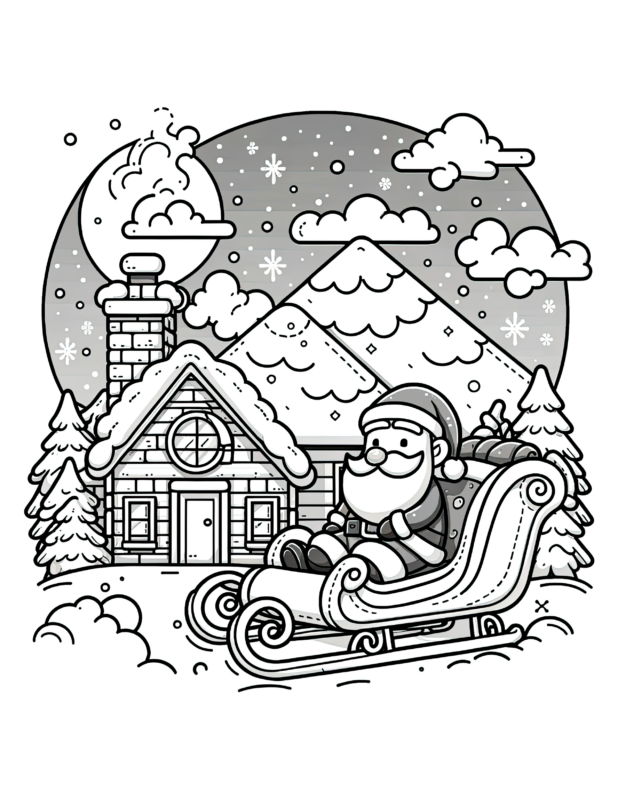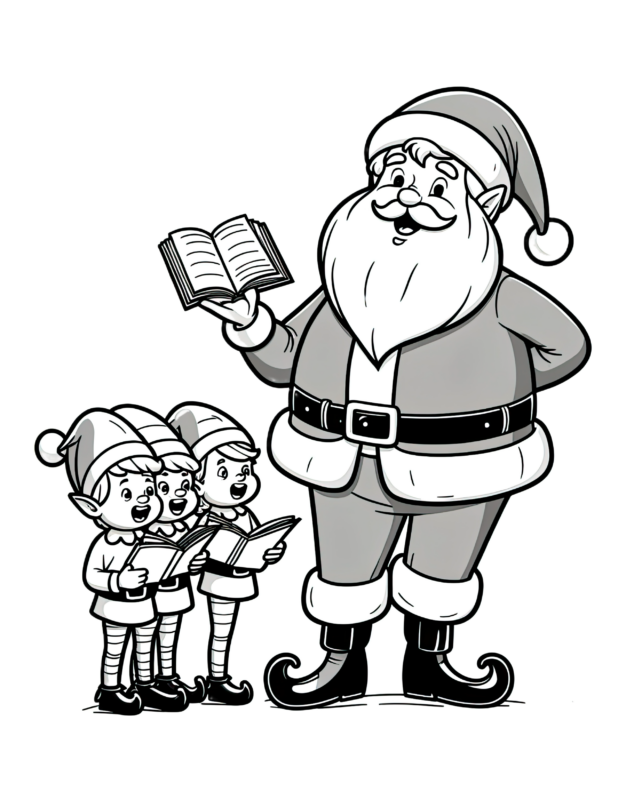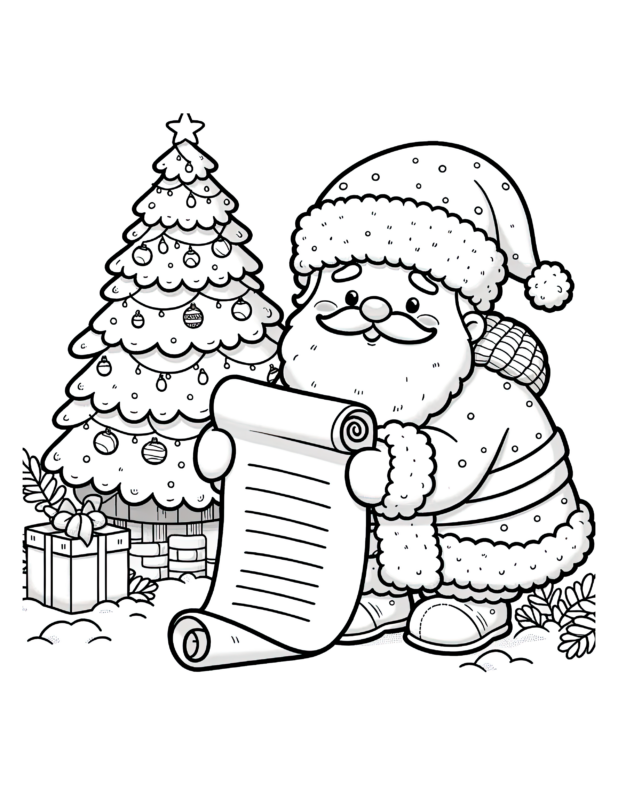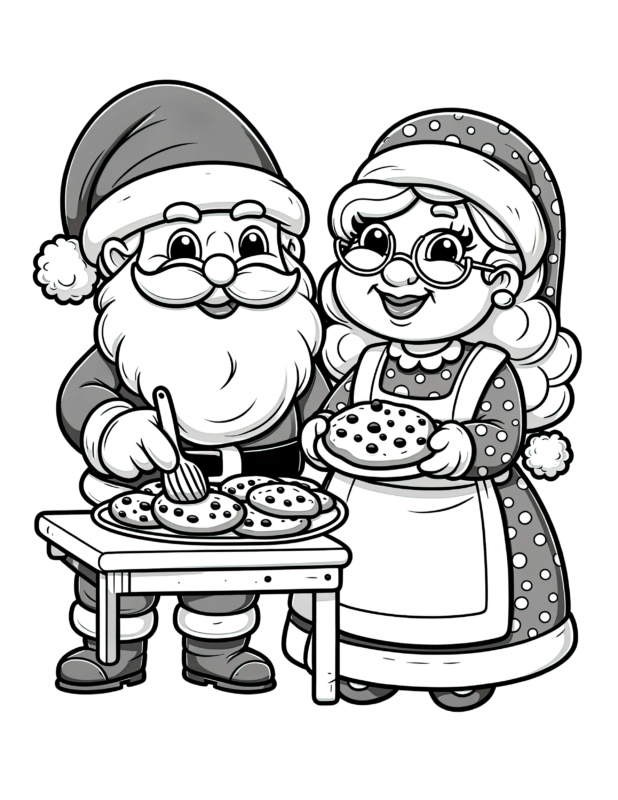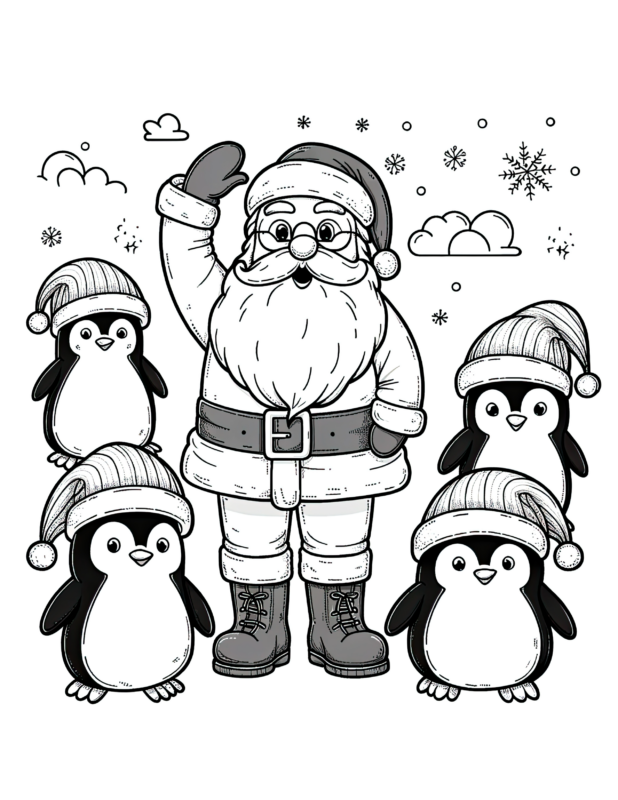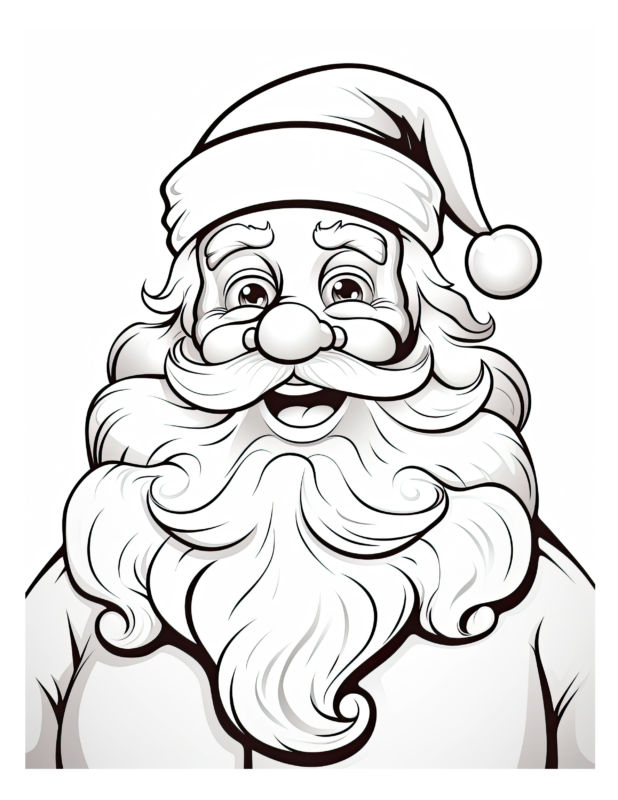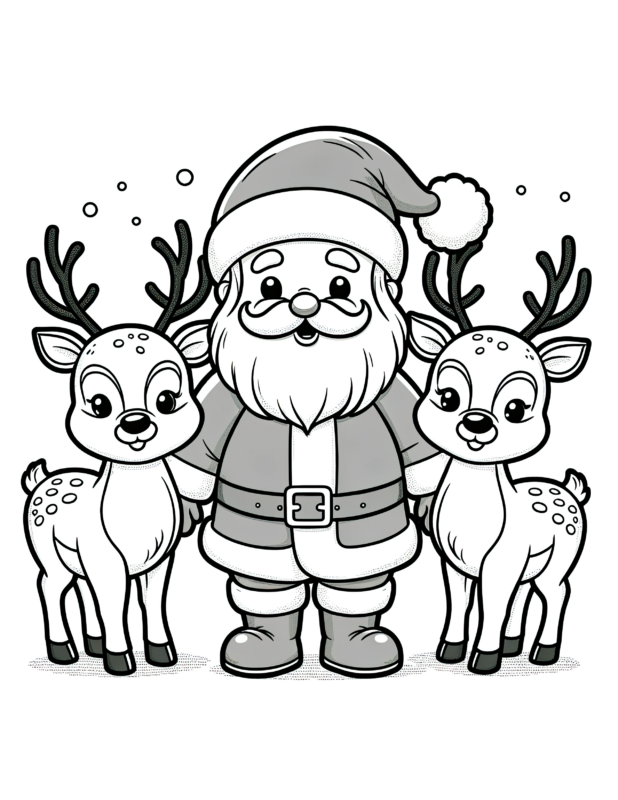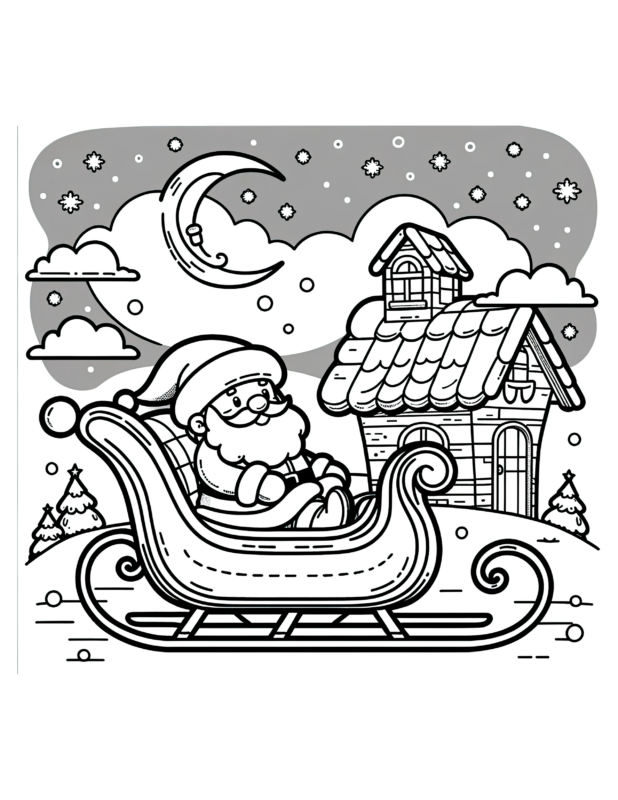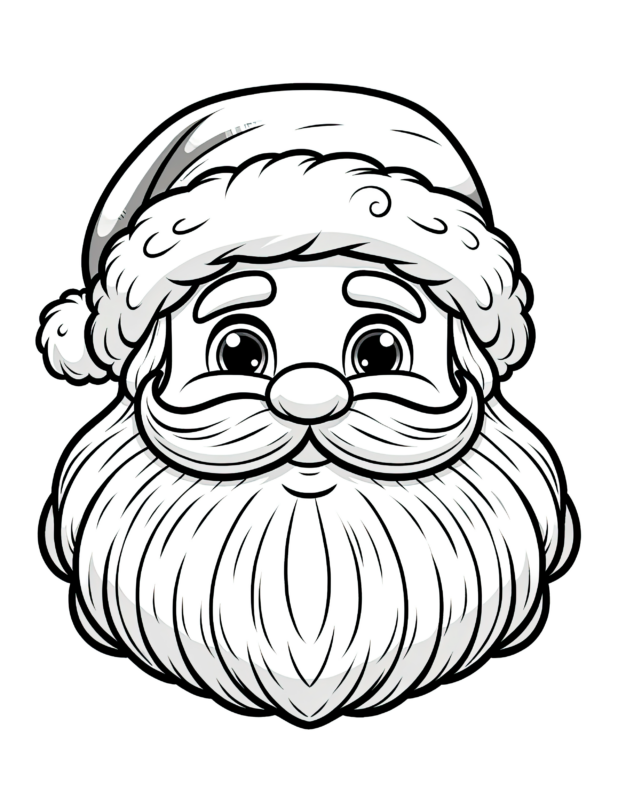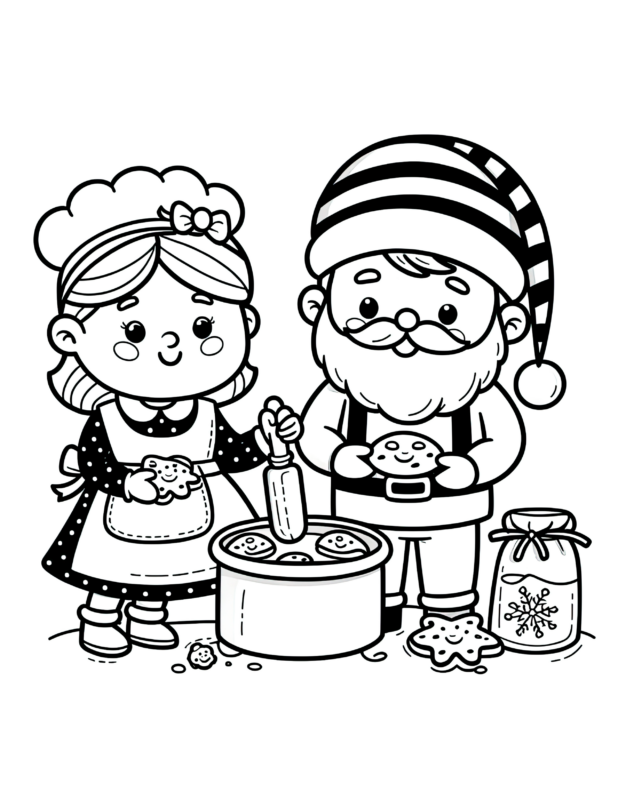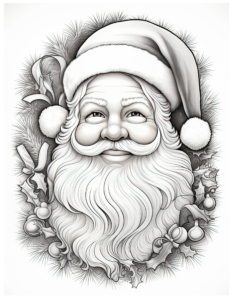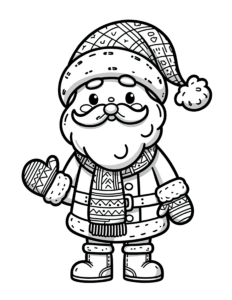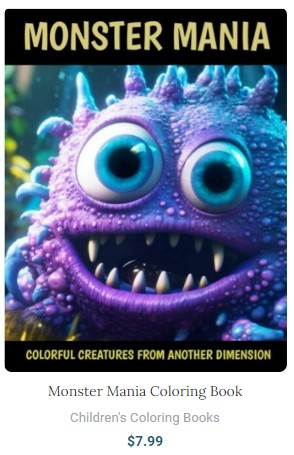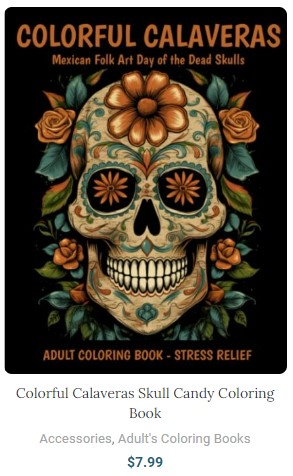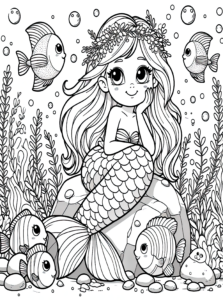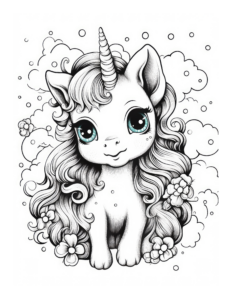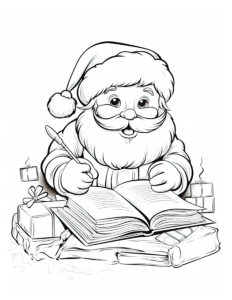
"21 Enchanting Facts About Santa Claus: Unveiling the Magic Behind the Myth!"
Santa Claus, a figure synonymous with Christmas and joy, has captivated the hearts of millions worldwide. This mythical character, known for his jovial demeanor and generous spirit, has roots that trace back centuries. In this post, we unravel 23 fascinating facts about Santa Claus, exploring his historical origins, cultural impact, and the magical aura that surrounds him.
*These are all Free Printable Coloring Sheets. I am offering these for non-commercial use.
*You can print out as many as you want to share with your family and friends. They are designed for both adults and children.
SHARE THE LOVE
The Origin of Santa Claus
Santa Claus’s story begins in the 4th century with Saint Nicholas of Myra, a bishop known for his generosity and kindness. His legend grew over centuries, transforming into the mythical figure of today. This blend of Christian and pagan traditions eventually evolved into the Santa Claus we know, a symbol of selfless giving.
Saint Nicholas – The Real-Life Inspiration
Saint Nicholas, born in the 3rd century in what is now Turkey, became famous for his acts of charity. One well-known story involves him secretly giving gold to a poor man’s daughters. His feast day, December 6th, became associated with gift-giving, laying the groundwork for the modern Santa Claus
Evolution of Santa’s Image
Santa’s image has evolved significantly. Early depictions varied greatly, often showing him as a stern, bishop-like figure. It wasn’t until the 19th century, particularly in America, that he began to resemble the jolly, rotund man with a white beard we recognize today
Santa’s Iconic Red Suit
The iconic red suit, complete with white fur trim, was popularized in the 20th century. While Santa was often shown in different colored robes, it was the Coca-Cola advertisements of the 1930s that cemented the red suit as his signature attire.
The North Pole Myth
The idea of Santa living at the North Pole was popularized in the 19th century. This remote, magical location was thought to be an ideal home for Santa, providing a secretive and enchanting base for his Christmas operations.
Rudolph the Red-Nosed Reindeer
Rudolph, the most famous of Santa’s reindeer, was created by Robert L. May in 1939 for a department store’s Christmas promotion. The story of the red-nosed reindeer quickly captured the public’s imagination, becoming an integral part of Santa’s lore.
Don’t Miss Out! Grab Your Free Digital Coloring Book by Signing Up
Santa’s Elves and Workshop
The concept of Santa’s elves and his workshop emerged in the 19th century. These tireless helpers, often depicted as small and merry, are said to assist Santa in toy-making and managing his naughty or nice list
The Global Journey on Christmas Eve
The magical idea that Santa travels the globe in one night, delivering gifts to children, has its roots in the supernatural abilities attributed to Saint Nicholas. Modern technology, like the NORAD Santa Tracker, adds a fun, contemporary twist to this legend.
Milk and Cookies Tradition
Leaving milk and cookies for Santa is a tradition that started in the United States during the Great Depression. It was a way for parents to encourage generosity and kindness in their children, reflecting the spirit of Santa Claus
Santa Claus Around the World
Santa Claus has different names and forms around the world. In the Netherlands, he is known as Sinterklaas; in the UK, Father Christmas; and in Russia, Ded Moroz. Each variation reflects the cultural heritage and traditions of its region
Santa’s Sleigh
The idea of Santa’s sleigh, drawn by reindeer, was first popularized in the 1823 poem “A Visit from St. Nicholas” (more commonly known as “The Night Before Christmas”). This poem played a crucial role in shaping the modern Santa Claus mythology
The Naughty or Nice List
Santa’s naughty or nice list is a hallmark of his lore, encouraging children to behave well throughout the year. The list adds an element of moral teaching to the Santa Claus tradition, linking good behavior with rewards
Santa in Popular Culture
Santa Claus is a prominent figure in popular culture, featured in countless movies, songs, and books. Each representation adds to his mythos, making him one of the most recognizable and beloved characters globally
Coca-Cola’s Role in Santa’s Popularity
Coca-Cola played a significant role in popularizing Santa Claus’s current image. Their holiday advertisements in the 1930s, featuring a cheerful, plump Santa, helped standardize his appearance and embed him in popular culture
Santa Claus in Literature
Santa has been a popular subject in literature since the 19th century. His portrayal in works like “A Visit from St. Nicholas” and “The Life and Adventures of Santa Claus” by L. Frank Baum has significantly shaped his modern image.
The Santa Claus Post Office
The Santa Claus Post Office, located in Santa Claus, Indiana, receives thousands of letters for Santa every year. It has become a symbol of the Christmas spirit and the widespread belief in Santa Claus.
NORAD Tracks Santa
Since 1955, the North American Aerospace Defense Command (NORAD) has annually “tracked” Santa’s journey on Christmas Eve. This tradition combines technology and imagination, bringing the Santa Claus myth into the modern age.
Santa Claus in Movies
Santa Claus has been a popular character in movies, embodying the spirit of Christmas. Films like “Miracle on 34th Street” and “The Santa Clause” have further cemented his role as a cultural icon.
The Science of Santa’s Journey
The idea of Santa traveling the world in one night has fascinated both children and adults. The concept challenges our understanding of time and space, adding a layer of mystery and magic to the Santa Claus legend
Santa Claus Parades
Santa Claus parades, a common feature in many countries, celebrate the arrival of the holiday season. These parades, filled with floats, music, and festive cheer, often culminate with an appearance by Santa himself.
Variations of Santa in Different Cultures
Different cultures have their own versions of Santa Claus. For instance, Italy has La Befana, a kind witch who delivers gifts, and Iceland has the Yule Lads, mischievous figures who leave gifts or potatoes depending on children’s behavior.
SANTA CLAUS COLLECTION
Frequently Asked Questions (FAQs)
Where did Santa Claus originate? Santa Claus originated from the legend of St. Nicholas, a 4th-century bishop from Myra, who was known for his generosity and became the patron saint of children.
Why is Santa Claus associated with the North Pole? The North Pole is symbolically chosen as Santa’s home due to its remote and magical nature, aligning with the mystical aspects of the Santa Claus legend.
How did Santa’s image evolve to what it is today? Santa’s image evolved from a thin, bishop-like figure to the plump, jolly figure we know today, influenced by various cultural depictions and societal changes.
What role do elves play in Santa Claus’s story? Elves are depicted as Santa’s helpers, working in his workshop at the North Pole and assisting in the preparation of gifts for Christmas.
How has technology influenced Santa Claus traditions? Technology has modernized interactions with Santa, through virtual visits, tracking apps, and online platforms, making the Santa experience more accessible to children worldwide
SHARE THE LOVE
CHRISTMAS COLLECTION
YOU MIGHT ALSO LIKE
I sincerely hope you’ve enjoyed the coloring pages you’ve discovered here. If you found these pages to your liking, you’ll be delighted to know that we have an extensive selection of coloring pages for you to explore. So, dive in, unleash your creativity, and let the colors flow! Happy coloring!
Free printable coloring pages for kids and adults:
Don’t Miss Out! Grab Your Free Digital Coloring Book by Signing Up
If you love the free pintables but would like to purchase them as a book, please stop by our shop
to purchase them on Amazon (click here)



